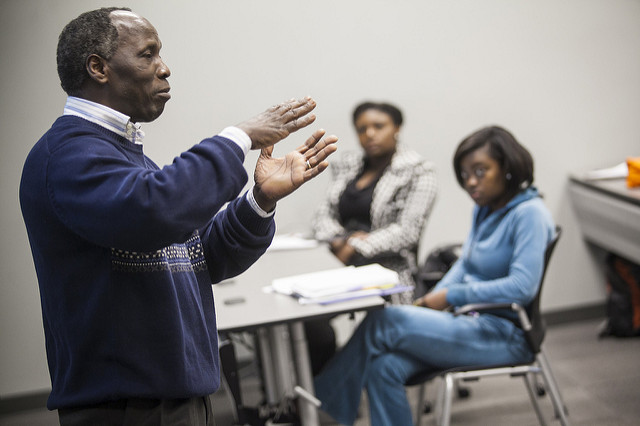
The Biggest Shift We Must Make to Win the Hearts of Students
Last month, I spoke to a student athlete and her coach in two separate conversations. Hannah (not her real name) had just quit her soccer team. Her reason? “I just couldn’t handle the yelling and anger from my coaches any more.”
When I spoke to Hannah’s coach, he said, “I yell because I just don’t see any grit in these athletes. That’s why I get so frustrated at them.”
Both the coach and the athlete were put out with each other. What’s most interesting is—I believe at least part of the solution may just lie in how we adults lead our students.
How We Tend to Lead in High Stress Situations

Some time ago I finished interpreting data on leadership styles of educators, coaches and parents from eight different states across the U.S. The surveys represented 512 adults who had four realities in common:
- They each taught or led students.
- They were all over 35 years old.
- They all worked with adolescents.
- They all experienced high-stress situations.
Two common scenarios surfaced in the results:
- In stressful contexts, most tend to lead out of “relief.”
- In stressful contexts, the successful lead out of “belief.”
Leading Out of Relief or Belief
Parents often find themselves in challenging scenarios with their own children. With tech-savvy kids who act confident and entitled, moms or dads can become exhausted; their own children can wear them out, especially after a busy day at work. This is when it’s tempting to lead out of relief. We want to relieve the current mess and bring peace to the household. Relief sounds very attractive in times of trouble.
Teachers often have students who struggle and perform poorly. To remedy the situation requires all kinds of patience, emotional intelligence and tenacity—not to mention, time. We can opt for the easy route and seek relief: just give them the answers; prescribe the path for them; tell them what’s on the test, so you can avoid their parents. This feels good because it’s a quick answer that brings relief.
Sadly, while these are quicker and easier options, they’re not long-term solutions. It’s a short-term answer for a larger issue that won’t go away until we choose a different leadership approach.
We tend to be motivated through one or the other—relief or belief.
The Motivation of Relief
Relief is our natural default style. When facing a difficult situation, we seek out a breather for ourselves, or our students. We want to ease the pain; to stop the bleeding; to fix the issue quickly.
As I mentioned, at times it’s about our relief. We choose the easy route and appease students, giving them their requests. It makes life easier, at least in the moment. And sometimes, we lead out of relief by venting our anger. We go into a rage, screaming and yelling just to feel better in the moment. It feels cathartic. Sadly, it is punitive.
And sometimes, it’s about their relief. We want to relieve students of poor behavior because they’re so stressed out; they have so many pressures on them with grades, sports and standardized tests. The least we can do is let them off the hook. And while this does ease the pain temporarily, it doesn’t necessarily empower students to grow and improve. We fix things up rather than make things right. Sadly, it is permissive.
The Motivation of Belief
Belief is the right path. In a challenging situation, we lead out of belief in the potential of the student. We pull out the best in them because we believe the best about them. Research from psychologist Diana Baumrind at the University of California Berkeley reminds us that students produce great when we are both:
- Responsive. We are attentive to them, supportive and caring. We believe in them.
- Demanding. Because we believe in them, we won’t let them settle for less than their potential.
This is what every student needs. We may tell ourselves that our yelling and frustration is all about “belief in these kids” but if they don’t sense it, we can have the opposite effect. In reality, we communicate that we don’t believe in them; that they’re losers and undeserving of our time and attention. It’s a fine line but it’s very real.
Daniel Coyle is a member of a team of psychologists from Stanford, Yale and Columbia who set out to explore this issue. They asked middle school teachers to give a writing assignment to their students, and afterward, give the students various types of feedback. To their surprise, the researchers discovered there was one particular type of remark that improved student effort so much, they called it “magical.” Students who received this feedback chose to revise their paper far more often than students who did not—a 40 percent increase among white students and a 320 percent boost for minority students. In the end, it improved their performances significantly. The phrase was simply:
“I’m giving you these comments because I have high expectations of you and I know you can reach them.”
The words themselves are not magic, but the thought behind them is profound. They communicate belief in the student, calling out the best in him or her. This requires tough love from us, with patience and tenacity to follow through. It’s effective, however, because our leadership stems from a deep seated belief in our students.






